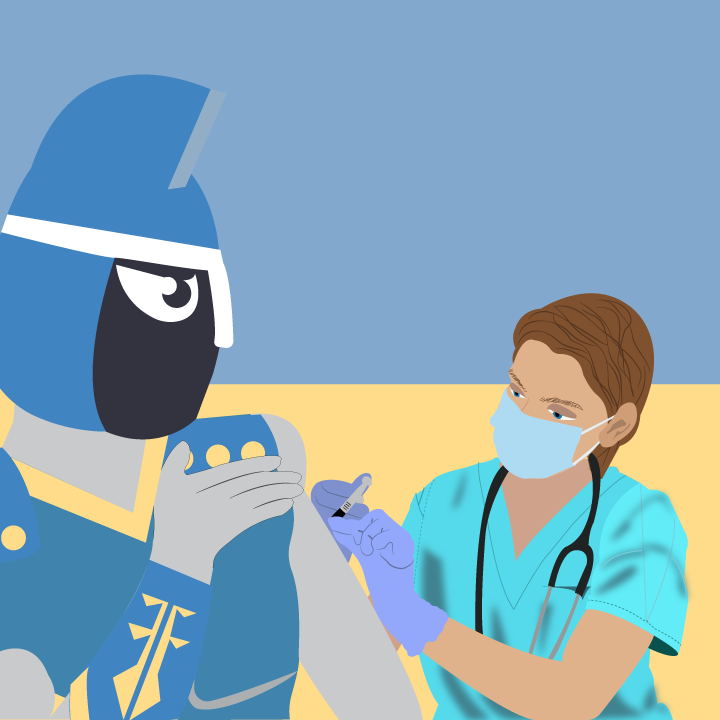Editor-in-Chief, 2018-2019
Tacked up on the wall of my newsroom office is a printed copy of the first edition of The Liberator, the anti-slavery newspaper written and published by the famed abolitionist and my personal hero William Lloyd Garrison. In his so-called “Inaugural Editorial,” Garrison wrote:
“I am aware that many object to the severity of my language; but is there not cause for severity? I will be as harsh as truth, and as uncompromising as justice. On this subject, I do not wish to think, or speak, or write, with moderation. No! no! Tell a man whose house is on fire, to give a moderate alarm; tell him to moderately rescue his wife from the hands of the ravisher; tell the mother to gradually extricate her babe from the fire into which it has fallen–but urge me not to use moderation in a cause like the present. I am in earnest; I will not equivocate; I will not excuse; I will not retreat a single inch–and I will be heard.”
It’s easy to look back now, as diligent students of history, and recognize the righteousness of The Liberator’s editorial crusade. After all, Garrison and his compatriots were on the right side of history; their cause triumphed over the forces of oppression and evil. The North won the war, the slaves were freed, and the Union was preserved forever. But, in its time, The Liberator was not a well-regarded newspaper.
The state of Georgia offered a $5,000 bounty–roughly $146,000 in today’s currency–for Garrison’s capture. Imagine that: a U.S. state putting a bounty on a journalist’s head! His newspaper was regularly criticized by other media outlets for his support and encouragement of direct action against slave owners and their institutions. If Garrison and company were alive today, they would likely be banned from Twitter for their glorification of John Brown’s famous, but ultimately futile, raid on Harpers Ferry.
And still, he never quit. He published The Liberator every week for 34 years, writing fiery columns in every edition until the Civil War ended and slavery was finally abolished.
William Lloyd Garrison was a radical–and The Liberator was not an objective newspaper–but the times Garrison lived in did not call for centrism or objectivity.
Our times do not call for objectivity. They do not call for moderation, nor do they call for dubious interpretations of the truth. Now is not the time to be timid or fearful, despite our obvious inclination to feel that way.
Today, there is cause for severity; if there was ever a time to be a radical, now is that time.
I hate to be the one to tell you this, loyal reader, but no one is going to make the changes you want to see–until you demand it. No one is going to mete out the justice that you so desperately seek–until you demand it. The people you ostensibly choose to represent you–from your student representatives and Board of Education members all the way up to your president–will not work in your interest unless you make them work in your interest.
If you want change–and I know you all hunger for real, positive change–you and you alone have to fight for it.
I hope that you heard this truth during my time as editor of this scrappy little newspaper. When I accepted this job last year, I vowed to bring transparency and accountability to this campus through diligent, thoughtful reporting on the stories that really matter to you, our readers. But more than that, I wanted to capture the realities of life at a community college in the 21st century, the triumphs as well as the struggles. Though we weren’t always perfect–and I really am sorry that The Torch couldn’t be everything to everyone–I believe that we fulfilled that mission during my editorship.
This edition, my staff and me’s final attempt to leave a lasting impression on this campus, is centered around that idea of change: how it happens, how we respond to it and how it affects us all–both good and bad.
As you flip through these pages, I hope you grasp just how quickly things are changing: on campus, in our state, in our country and throughout the world. I also hope it makes you think about how you yourself have changed over the last year, for better or for worse.
I can still hardly grasp how much I’ve changed during my time at Lane Community College. Before I arrived here two long years ago, I was lost, hopeless and struggling to find my purpose in a world going mad. Now, after surrounding myself with some of the most brilliant, hopeful and genuinely kind people I have ever had the pleasure of meeting, I have set myself up to become the person I always knew I could and should become.
I am critical of this college because I love this college. This institution, as misguided as its administrators may sometimes be, is the setting of the most incredible, transformative years of my life. No matter where the future takes me, I will always remember LCC as the place that gave me a chance when no one else would.
If there is one thing I hope you take away from The Torch during my tenure as editor, it’s that things are not normal. It is not normal that a registered sex offender won a board seat with 97 percent of the vote. It is not normal that white nationalists roam among us with near-impunity, cloaking their hatred with tepid “free speech” arguments and bitter online irony. It is not normal that any one of us could be the next victim of mass shooting for no reason other than being in the wrong place at the wrong time. It is not normal that our classmates live in fear of being kidnapped by masked men bearing guns and badges.
None of this is normal, and it’s up to us to make sure it never becomes normal.
Now, after one hell of a year, it’s time for me to say goodbye to The Torch and to this college. I wish I could tell you that I know exactly what my future holds, but a five-year plan has never exactly been my style. What I can tell you is this: I am in earnest, I will not equivocate, I will not excuse, and I will not retreat one single inch.
And I will be heard.
Thank you for reading. Thank you for listening. Thank you for fighting. I’ll see you soon.


